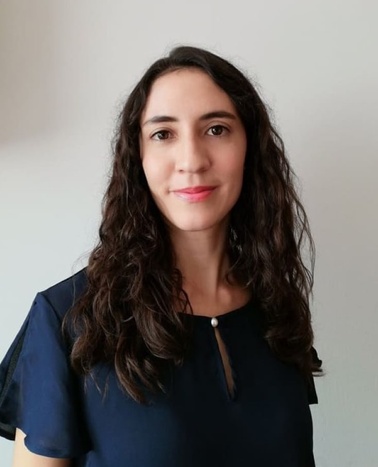
Juliana Zegarra-Ballón Quintanilla
I’m an architect with an undergraduate degree from the Universidad Católica de Santa María in Peru. I have experience in architectural, interior and furniture design, project management and construction supervision. Passionate about social and educational projects, I believe in the kindness of architecture, its ability to create and renew cities and change lives.

"Learning about the different ways business and design happen in other realities provides new perspectives and even potential solutions for an issue happening on the other side of the world."
Spaces to live and thrive
Social and environmental consciousness in architecture are more than just buzzwords for Peruvian architect Juliana Zegarra-Ballón Quintanilla. Rather than merely trending topics, Juliana says they’re at the heart of a community’s wellbeing.
According to Juliana, it’s easy to forget that architecture is inherently social when we’re distracted by technology and globalization. Yet at the end of the day, she maintains that architects are not responsible only for creating spaces for people to live; instead they should allow people to thrive.
While cofounding a firm back in Peru, Juliana once held the mindset of being “just” an architect. In other words, she thought her career options would always involve being part of private or public firms, or working independently.
All of that changed after enrolling at IE School of Architecture and Design, where she realized and accepted that architects are also businesspeople. Juliana cites learning how to anticipate or reduce uncertainty and risk in the architectural process as a perfect example of that type of business-focused thinking. Being immersed in her studies and learning about disruptive technologies, different business models and marketing strategies, has revealed to Juliana a world beyond design and construction.
One aspect of the program that Juliana particularly appreciates is the cultural variety and collaboration in the classroom. While being a blended program with periodic in-person classes, she appreciates sharing this experience with her classmates. “In the end, we are not so different; we have shared interests and passions that help us come together,” she tells us.
Another element of the program that Julia highlights is the instruction she’s receiving on how to better recognize the economic variables behind architectural projects. In the process, she’s developing a stronger understanding of how politics and economics affect everything we do, both tangibly and intangibly.
“I enjoyed realizing that the economy wasn’t just about numbers but choices and relationships both in large and small scales.”
Simultaneously, Juliana’s perception of architecture also changed during the pandemic. From her perspective, COVID-19 revealed architectural shortcomings in certain communities where buildings weren’t built with people’s health in mind. She believes that architects and designers sometimes sacrifice well-being for aesthetics or basic functionality.
In turn, the pandemic reinforced the importance of essential design elements like natural light, effective ventilation, and a connection with the outdoors. At the same time, it proved the critical need for new structures to serve more than one purpose, to be flexible and adaptable instead of just profitable and beautiful. It’s a holistic philosophy that fits perfectly with the educational ethos of the Master in Business for Architecture and Design.